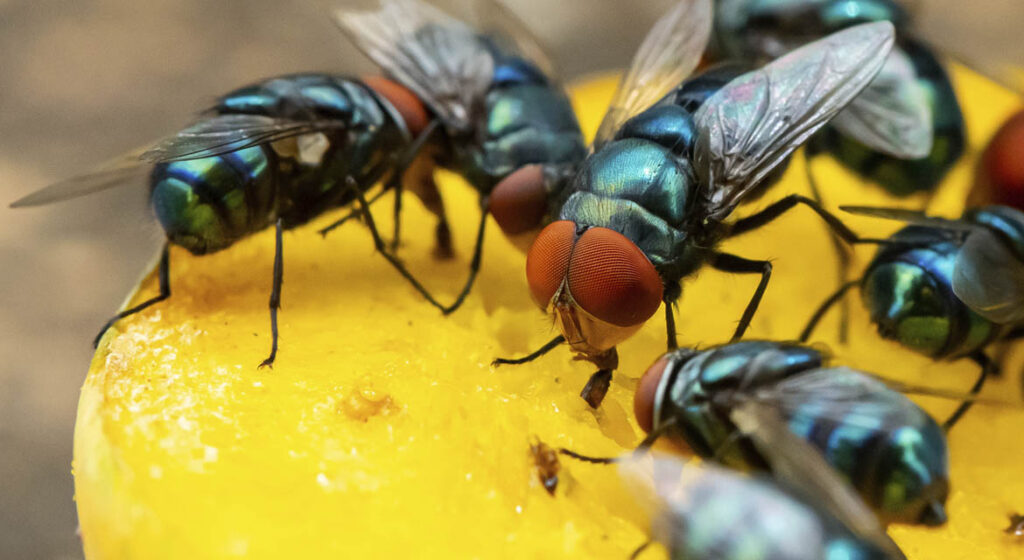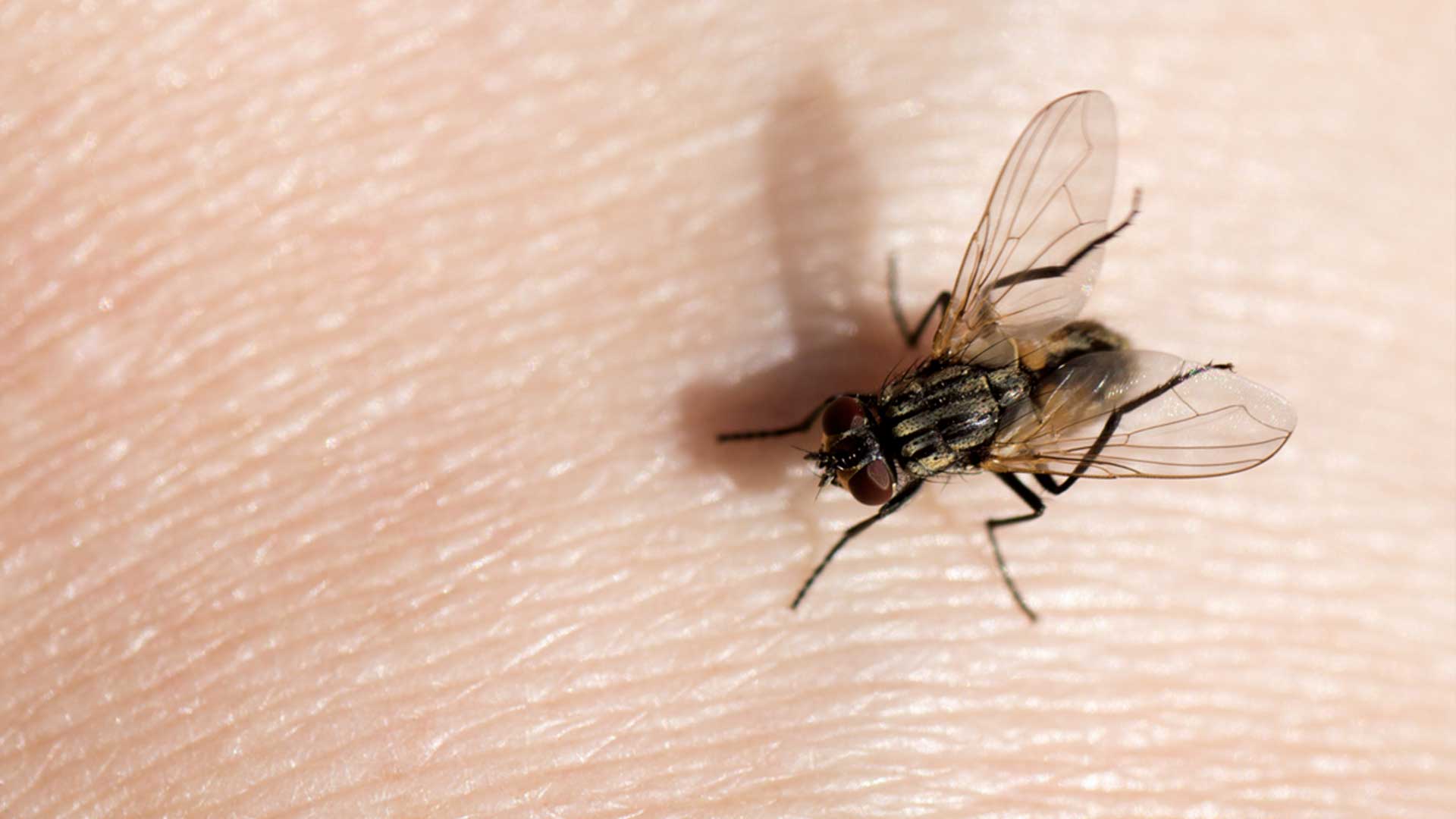
Are Flies Harmful to Humans?
Flies are one of the most common pests found in urban environments, especially in areas where there is an abundance of organic material and food sources. While they may seem harmless, flies can carry pathogens that can cause serious health risks to humans. Here are three key points regarding the topic:
- Flies can transmit disease-causing organisms, potentially leading to illnesses such as diarrhea, food poisoning, or more serious diseases like typhoid fever or cholera.
- Flies can cause allergies and irritation due to the proteins present in their saliva, feces, or body parts.
- Flies feeding on open wounds or sores can introduce bacteria and increase the risk of secondary infections, particularly in healthcare settings or areas with poor sanitation.
Fly Species
There are a variety of fly species that can be found in households, restaurants, and other public spaces. The house fly is one of the most familiar species. They’re often found in areas with a ready food source, such as garbage cans, dead animals, and pet waste.
Drain flies are typically found near breeding sites in drains and can contaminate surfaces with bacteria they pick up from animal and human waste. These flies have a fuzzy appearance and their larvae feed on organic material in drain pipes.
Another common fly species is the fruit fly, which is often found near ripe or rotting fruits and vegetables. While these flies do not pose a direct threat to human health, they can contaminate food and cause spoilage. Fruit flies are a nuisance in households and can be difficult to control once they have established a breeding site.
Blood-feeding flies, such as horse flies and deer flies, are also found in many areas and can be a nuisance to both humans and domestic animals. These flies can transmit diseases such as tularemia, anthrax, and Lyme disease.
Biting midges, also known as no-see-ums, are small, flying insects that can transmit diseases and cause allergic reactions in some people.
How Flies Spread Disease
Flies feed on organic material that is contaminated with pathogens, and they can transfer these pathogens to other surfaces or areas, including exposed food sources. The fuzziness of house flies provides an ideal surface for bacteria to stick, allowing them to multiply and create a breeding ground for pathogens.
A single fly can carry up to 6,000,000 bacteria on its exterior, while its gut can contain up to 100,000 bacteria. The quantity of pathogens on the fly’s body increases with the age of the fly and the number of breeding sites it has visited.
The number and types of pathogens present on adult flies can vary based on the species, location, and breeding sites. Flies that breed in animal waste and dead animals tend to carry higher loads of pathogens compared to those that breed in organic material.

Truly Nolen GUARANTEE
If you’re not completely satisfied, you’ll get a full refund on your most recent service with our 100% money back guarantee.

$50 Off Year Round Pest Control
Truly Nolen is a family-owned company with 85 years of experience providing the best pest control. If you’re not completely satisfied, you’ll get a full refund on your most recent service with our 100% money back guarantee.
Health Risks Flies Pose to Humans
Bacterial pathogens such as Escherichia coli, Staphylococcus aureus, and Salmonella are the most common microbes found on adult flies. They can be transmitted to humans through their bites or by contaminating surfaces with their saliva, feces, and vomit. These pathogens can cause a wide range of illnesses, including gastrointestinal infections, food poisoning, and skin infections.
In addition to bacterial pathogens, adult house flies also carry viral and fungal organisms in their gut and on their body surfaces. Flies have been implicated in the transmission of hepatitis A and enteric diseases like cholera, dysentery, and rotavirus.
Gastrointestinal illnesses transmitted by flies can cause diarrhea, vomiting, and stomach cramps, and can be particularly dangerous for young children, the elderly, and people with weakened immune systems.
In addition, flies can transmit the larvae of parasitic worms that can cause infections such as river blindness and elephantiasis.
Measures You Can Take to Combat Flies
Luckily, there are measures you can take to control the population of houseflies and reduce your risk of health problems. One measure is to implement good hygiene practices such as covering food and keeping living spaces clean.
Reducing breeding sites such as garbage, animal waste, and other organic materials can also help to limit the number of flies. Drain flies, for example, are often found in dirty dishes and drains, so cleaning these areas thoroughly can impede their breeding.
Furthermore, using insecticides or implementing fly baits and traps may be a useful means of controlling the fly population. Consult with a pest control specialist to determine the best approach.
When to Hire Professional Pest Control for Flies
In some cases, the best solution for eliminating a fly infestation is to hire a professional pest control service like Truly Nolen. So, when should you consider bringing in the experts? Here are some signs:
- Persistent infestations: If you’ve taken measures to control the fly population in your home or business, such as using fly traps or cleaning thoroughly, but the problem persists, it may be time to call the experts.
- Increased health risks: If you or someone in your household has a compromised immune system or respiratory issues, a fly infestation can pose a greater danger than usual.
- Commercial settings: Businesses that handle food or have a high volume of foot traffic, such as restaurants or schools, should prioritize the elimination of fly infestations to protect the health and safety of customers and employees.
When choosing a pest control service, make sure they are licensed and qualified to handle the specific type of infestation. A reputable pest control service will assess the problem, recommend the most effective treatment plan, and ensure the safety of all occupants during and after the treatment.
Conclusion
Flies are not only a nuisance, but they can also pose significant health risks to humans. Hiring a Truly Nolen professional for a persistent fly infestation or people with increased health risks is a wise decision. In addition to eliminating the problem, they can provide preventative measures to keep the flies at bay in the future. So, if you’re dealing with a pesky fly infestation, don’t hesitate to call in the professionals.

$50 Off Year Round Pest Control
Truly Nolen is a family-owned company with 85 years of experience providing the best pest control. If you’re not completely satisfied, you’ll get a full refund on your most recent service with our 100% money back guarantee.
Frequently Asked Questions
Why are flies attracted to my home?
Flies are attracted to homes because they are seeking food sources. They are particularly drawn to decaying organic matter, such as garbage, rotting fruits, or pet waste. Additionally, flies are attracted to warmth, moisture, and areas with standing water.
Are flies harmful or dangerous to humans?
While most common flies are not directly harmful, they can pose health risks. Flies can spread diseases by landing on contaminated surfaces and then on food or utensils. Some diseases associated with flies include food poisoning, diarrhea, and eye infections. Learn more about flies
How do I prevent flies from entering my home?
To prevent flies from entering your home, take these measures: keep doors and windows screened, seal cracks or gaps in doors and windows, dispose of garbage properly and frequently, clean up pet waste promptly, store food in sealed containers, and maintain good hygiene in the kitchen and dining areas.
How can I get rid of flies in my home?
To get rid of flies, you can use methods such as fly traps, fly swatters, or fly papers to catch and eliminate individual flies. Additionally, addressing the root cause by eliminating breeding sources, such as proper waste management and cleaning up organic matter, can help reduce fly populations. If the infestation persists, professional pest control services can provide effective treatments. Learn More!
Why do flies seem to appear suddenly in large numbers?
Flies can reproduce quickly, especially in warm weather or if there are ample food and breeding sources available. Large numbers of flies can appear suddenly if there is a nearby breeding site, such as decaying organic matter or standing water, attracting and supporting a significant population of flies.

